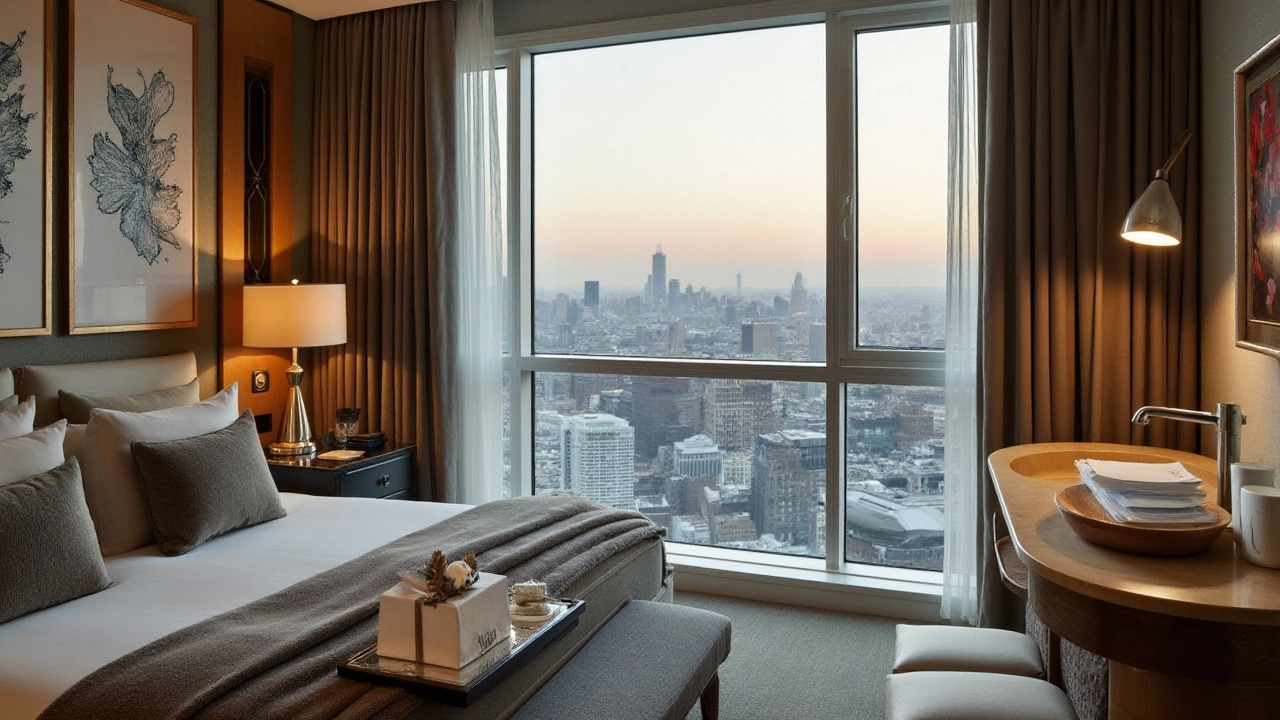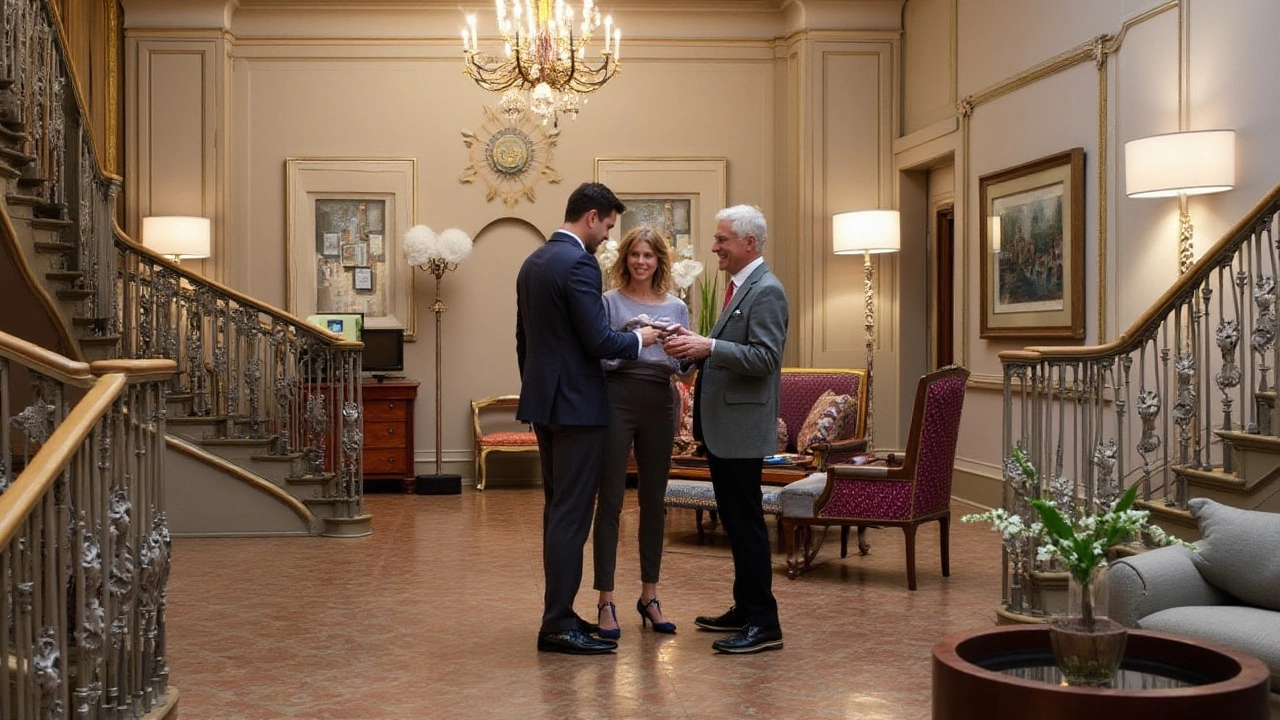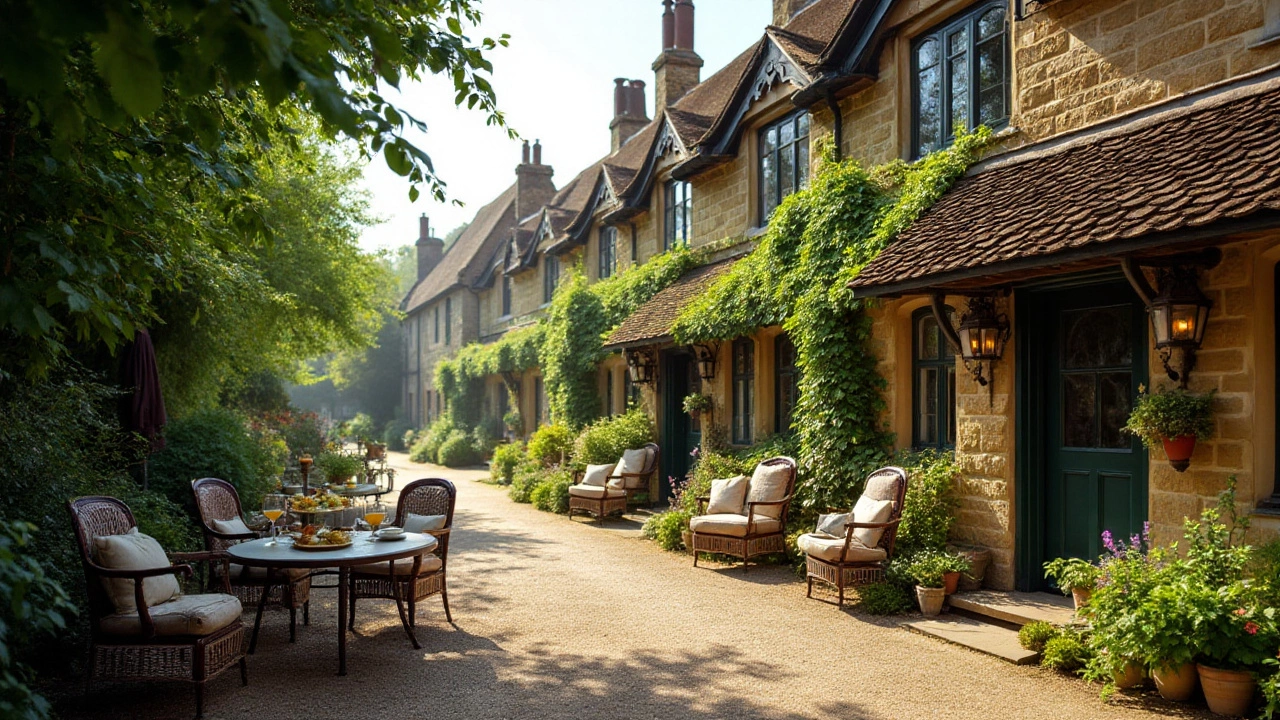Boutique hotels have carved a niche in the hospitality industry, offering travelers a distinctive and often more personalized lodging experience. Unlike their larger chain counterparts, these smaller, design-centric hotels focus deeply on catering to the individual preferences and desires of their guests. Such exclusivity and attention to detail often come with a price tag that may lead travelers to ponder whether the expense aligns with the value delivered.
Understanding the factors that contribute to the higher pricing of boutique hotels is crucial for travelers deciding where to stay. From the bespoke decor and intimate ambiance to the often central and unique locations, these hotels provide more than just a place to rest. They promise an experience, a story, and sometimes even the feeling of being in a home away from home. Whether this added charm is worth the cost varies from guest to guest, but for many, the allure lies in the unforgettable moments created within these walls.
- What Defines a Boutique Hotel
- Cost Factors of Boutique Hotels
- Benefits of Staying at Boutique Hotels
- Making Cost-Effective Choices
What Defines a Boutique Hotel
Boutique hotels, often perceived as a delightful divergence from the traditional hotel experience, encapsulate individuality and charm in a manner few other accommodations can rival. These establishments are typically smaller than standard hotels, often featuring anywhere from ten to one hundred rooms, but it's within these walls that the magic truly unfolds. Each room is often uniquely decorated, reflecting a central theme or the local flair of the surrounding area, offering guests a sense of place that goes beyond the generic hotel aesthetic. Such a personalized approach ensures that no two stays are ever alike, fostering an attachment and a memorable experience for travelers looking for something distinctive.
The concept of the boutique hotel first emerged in the 1980s, primarily in bustling urban landscapes like New York and London, where travelers began seeking alternatives to the predictability of chain hotels. As a result, these spaces often exhibit a blend of cultural decor and state-of-the-art technology, captured in an intimate setting that provides a sense of exclusivity and secrecy. A well-known example of a pioneering boutique hotel is The Blakes Hotel in London, designed by actress and designer Anouska Hempel, which set a trend with its design-forward approach and focus on privacy. This direction shifted the hospitality landscape, highlighting the potential of offering bespoke services and exclusive experiences.
An interesting facet of boutique hotels is their emphasis on location. You'll commonly find them in the heart of vibrant neighborhoods where travelers can immerse themselves fully in local culture, cuisine, and lifestyle outside the hotel. This enviable placement allows guests to explore the city or town easily, often on foot, rather than being sequestered in less central areas. A boutique hotel's location can play a pivotal role in the guest experience, offering authentic insights into the life of locals and the spirit of the community. Such proximity to local attractions is a considerable draw for those looking to feel more connected to their destination.
Another standout feature of boutique hotels is their focus on offering bespoke service. Because these hotels are not part of a larger chain, they often have the flexibility to cater to individual guest needs without adhering to corporate policies or uniformity. This might mean personalized welcome kits, custom meal options, or unique local tips that larger operations simply don't prioritize. Staff at boutique hotels frequently go beyond simply meeting the guests' needs; they anticipate them, often remembering past visitors and their preferences, which fosters a sense of familiarity and comfort uncommon in larger establishments. As renowned travel journalist Peter Greenberg once noted,
"The true measure of any hotel is how they respond to a guest in need, and boutique hotels excel due to their ability to treat each guest with unique care."
With innovation at their core, boutique hotels often embrace sustainable practices and reflect that commitment in their operations. Many are independently owned and operated, which means there's often a greater push toward eco-friendly initiatives and responsible tourism. Whether through the use of locally sourced materials, partnerships with local artisans, or energy-saving technologies, these hotels are frequently at the forefront of the sustainable travel movement. Guests not only benefit from a more personalized experience, but they can also leave with the assurance that their stay aligned with greener travel ideals.

Cost Factors of Boutique Hotels
When it comes to boutique hotels, some guests may experience a bit of sticker shock. Yet, understanding the underlying cost factors can demystify why these stays may not fit the average budget. At the heart of it, boutique hotels are often seen as more than just a place to spend the night; they are a curated experience. One primary element contributing to the higher costs is their limited scale and bespoke offerings. Unlike large chain hotels, which benefit from economies of scale, boutique hotels typically operate with fewer rooms. This intentionally small number allows for a concentrated and personalized guest experience, but it also means they cannot distribute costs over hundreds of rooms. Each room must, necessarily, bear a higher share of the overall expenses.
Besides their limited capacity, location plays a pivotal role in prices. Boutique hotels are often strategically nestled in the most sought-after neighborhoods, teeming with vibrancy and life. In urban centers, these prime locations not only guarantee proximity to cultural landmarks and attractions but inevitably incur higher real estate costs. Design and decor also contribute notably to the cost. Boutique hotels pride themselves on unique interior styles, often engaging renowned designers to craft spaces that are as much about aesthetics as they are about comfort. The meticulous attention to detail—from handcrafted furniture to custom art pieces—ensures each property tells its unique story, enhancing its allure but also elevating maintenance costs.
An often underscored factor in their pricing is the level of service on offer. Personnel at boutique hotels tend to go above and beyond to cater to individual needs, a refreshing departure from the generic service model of larger establishments. Given these hotels emphasize relationships and personalized care, they maintain a higher staff-to-guest ratio, which, although adding to operational costs, profoundly enriches the guest's travel experience. A recent survey from Hotelier Magazine found that boutique hotels employ up to 40% more staff per guest compared to traditional hotel chains.
Another crucial aspect is the commitment to locally sourced and sustainable practices. Boutique hotels tend to champion environmentally friendly operations, choosing organic produce for their in-house restaurants or utilizing eco-conscious materials in construction and decor. Such initiatives, while attractive and laudable, undeniably add to the bottom line. In many ways, these hotels strive to provide not just a place to sleep but an immersive, authentically local experience that embodies the ethos of 'travel as a lifestyle choice.'
As quoted in Travel + Leisure, "The charm of a boutique hotel lies in its ability to offer a one-of-a-kind experience, often encapsulating the local culture and spirit," which captures the essence of why costs might be justified for such an enriching encounter.
The exclusivity and unique experiences that boutique hotels offer often come at the expense of competitive pricing. However, these factors underscore a commitment to individuality that many travelers are willing to invest in. While it is true that not every traveler will prioritize these elements, those who do often find the value in boutique hotels far exceeds the cost, transforming a mere trip into an extraordinary journey that stays with them long after they have checked out.

Benefits of Staying at Boutique Hotels
Staying at a boutique hotel often feels like you are stepping into a world meticulously designed to cater to your senses and preferences. These types of accommodations are known for their distinct charm, usually offering a blend of unique architecture and design elements that reflect a personal touch you might not find in larger chain hotels. This individualized attention to style means that each room is crafted more like an art piece than a plain space to occupy. Imagine a room where antique touches meet modern elegance or local craftsmanship is proudly displayed in every corner—these are the experiences boutique hotels are cherished for.
Boutique hotels foster an atmosphere that encourages personalized service. The staff at these hotels often strive to know guests by name, anticipate their needs, and provide a level of customization that is rarely achievable in larger establishments. It's not unusual for guests to have specific dishes made to order based on personal preferences, or for the hotel to tailor room amenities for unique needs, such as custom pillows for a better night’s sleep. This high ratio of staff to guests often leads to stronger relationships and a more catered experience, something travelers who frequent boutique hotels deeply value.
While the design and personalized service are essential, the boutique hotel experience extends beyond aesthetics and interaction to include carefully curated amenities. Many of these hotels pride themselves on offering local and artisanal products, whether it's the gourmet treats in your room, the toiletries in the bathroom, or specialty teas and coffees sourced from nearby producers. Some even feature locally inspired wellness treatments, offering relaxation rooted in the cultural essence of the area. These options not only enhance the guest experience but also allow travelers to connect with the locality on a deeper level.
Another notable benefit is the prime location that many boutique hotels boast. These establishments are often situated in the heart of cities, vibrant neighborhoods, or amidst picturesque landscapes, allowing guests immediate access to local attractions and hidden gems. Whether nestled in a bustling urban center or a serene seascape, the focus is usually on creating an authentic stay that revels in its surroundings. This proximity not only cuts down travel time to key sites but often showcases the most authentic aspects of the locale.
For travelers who prioritize sustainability, many boutique hotels are leading the charge in eco-friendly practices. From solar panel installations and water conservation systems to farm-to-table restaurants that reduce food miles, these hotels often integrate sustainability into their core ethos. This commitment allows guests to enjoy their stay with the confidence that their choices support green practices. As a bonus, many eco-conscious travelers find that these accommodations share a passion for sustainability, which creates delightful conversations and opportunities for learning.
"Boutique hotels are not just places to stay; they are immersive experiences that capture the soul of their culture and locality. Staying at one is like reading a story written by the town itself," says travel journalist Emma Rogers.
In terms of value, it’s also important to note the cultural and social experiences these hotels often host. From intimate gatherings with local artists or musicians to unique culinary classes conducted within their kitchens, boutique hotels frequently offer activities that resonate with guests. These events not only provide entertainment but also create moments of connection between guests and the local community, enhancing the richness of the travel experience.

Making Cost-Effective Choices
When considering a stay at a boutique hotel, making the right cost-effective choices requires a combination of research and knowing your priorities. It starts with understanding exactly what you value most during your stay. Are you drawn to the charm of unique design elements or perhaps the personalized service that boutique hotels are known for? Maybe it's the prime location that matters most to you. Whatever the case may be, identifying these factors can help you weigh the cost against the benefits. A savvy traveler often finds the perfect balance between luxury and affordability by focusing on what genuinely enhances their travel experience.
Booking at the right time can dramatically affect the cost of your boutique hotel stay. Prices tend to fluctuate based on the season, so it's wise to check different time frames. Off-season bookings not only offer a lower price but also a quieter, more intimate experience, free from the crowds that fill hotels during peak travel times. Additionally, subscribing to newsletters of your preferred hotels can grant you access to exclusive deals and early bird offers. A little patience and vigilance can go a long way in securing a room at an attractive rate.
Another way to manage costs is by comparing the amenities offered by various boutique hotels. Some hotels include complimentary breakfast, free Wi-Fi, or spa access in their rates, which could save you money compared to booking these services separately. Don't hesitate to reach out to the hotel directly to ask about packages or promotions that aren't advertised online. You may be surprised at the unlisted benefits they can offer just over a simple phone call or email exchange.
It's important to remember that the little things often add up. Pay attention to the extra costs that might be associated with a boutique stay, such as parking fees, resort charges, or other hidden costs. Knowing these in advance helps prevent unpleasant surprises at checkout time and assists in making a more informed decision rather than simply opting for the lowest room rate. Consider consulting review sites where previous hotel guests often share their experiences and advice, including cost-saving tips.
One savvy travel tip is to explore loyalty programs. Often underrated, these programs can offer various discounts and perks for regular guests. Even at boutique establishments, many belong to a network or alliance that rewards guests for their repeat visits. Enrolling in such programs not only secures instant discounts upon booking but also accumulates points that can be used for upgrades or free nights in the future, making your luxurious stay more affordable over time.
An interesting report from Booking.com once highlighted that "the art of negotiation is not yet lost in the hotel industry."
"Travelers who aren't shy about asking for concessions can often find themselves with complimentary services,"lending credence to the notion that a direct and courteous approach could unlock hidden value, even in the world of boutique stays. Once you identify the room of your dreams, a simple, polite inquiry about available upgrades or add-ons could enhance your travel experience significantly without padding your bill.

